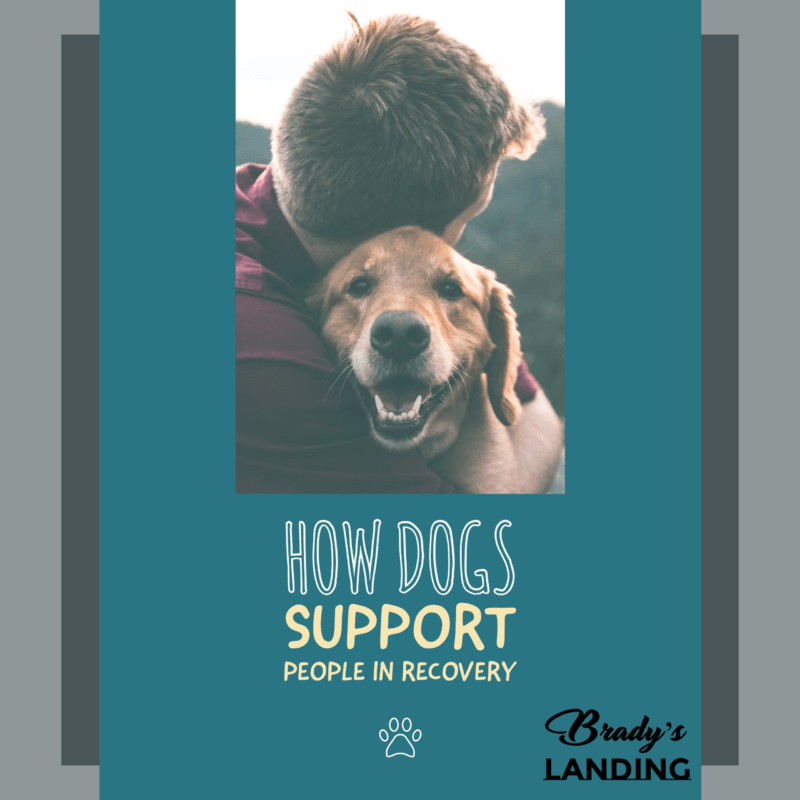
Support Dogs and People in Recovery
Support animals have been shown to help those dealing with recovery from addiction.
Dogs can provide several benefits to people of all ages, even after only limited interactions. We are all familiar with how service dogs help people with physical disabilities such as blindness, but it’s now becoming more common to see dogs used for emotional support as well. In many cases, they’ve been proven to treat and even prevent various mental disorders including depression and anxiety. This is why they’re often used in therapy and rehabilitation settings, especially those related to substance abuse and mental health.
Canines provide a myriad of physical and psychological benefits. With their presence alone, dogs can:
- reduce stress and anxiety
- reduce depression and loneliness
- provide a sense of purpose
- lower blood pressure and encourage exercise
- create social opportunities
There are specific benefits that all dogs can provide those in recovery from any addiction. For instance, people with SUD’s (substance use disorders) struggle greatly with identifying, communicating, and coping with their emotions. In fact, disordered behaviors are often the result of these emotional deficits, acting as a maladaptive coping skill.
It has been shown that dogs are particularly helpful with providing a consistent source of calming support and companionship. They often intuitively know when someone needs their support, which is especially useful in times of crisis or when temptation is highest. Dogs can also help those in addiction recovery rebuild their identity and improve their self-view.
Experience Has Proven Its True
So many people I have known throughout the years have consistently affirmed the benefits noted above. Most will tell you in no uncertain terms that their dog (or cat in some cases) saved their life. They say that their best friend always seems to know when they aren’t feeling well – whether physically or emotionally. Sometimes, the dog knows something is wrong before the person does!
This, of course, provides them an opportunity to address the potential source of distress before the knee-jerk response has a chance to take hold. It can actually assist in making more positive decisions in furtherance of their recovery, as opposed to being blind-sided by an emotion or state of mind that could just as easily derail their progress.
Knowing all the benefits a support animal can provide, I would recommend to anyone in a position to care for a new dog or cat, to earnestly consider adopting. Check out your local animal shelter or humane society – there are so many amazing pets just waiting to love and support a new person. And, while the benefits outlined in this article are tied to those in recovery, the positive advantages of pet ownership apply to everyone!
If you or someone you love is looking for a recovery residence with a live-in support dog, check out Phil from Brady’s Landing.
